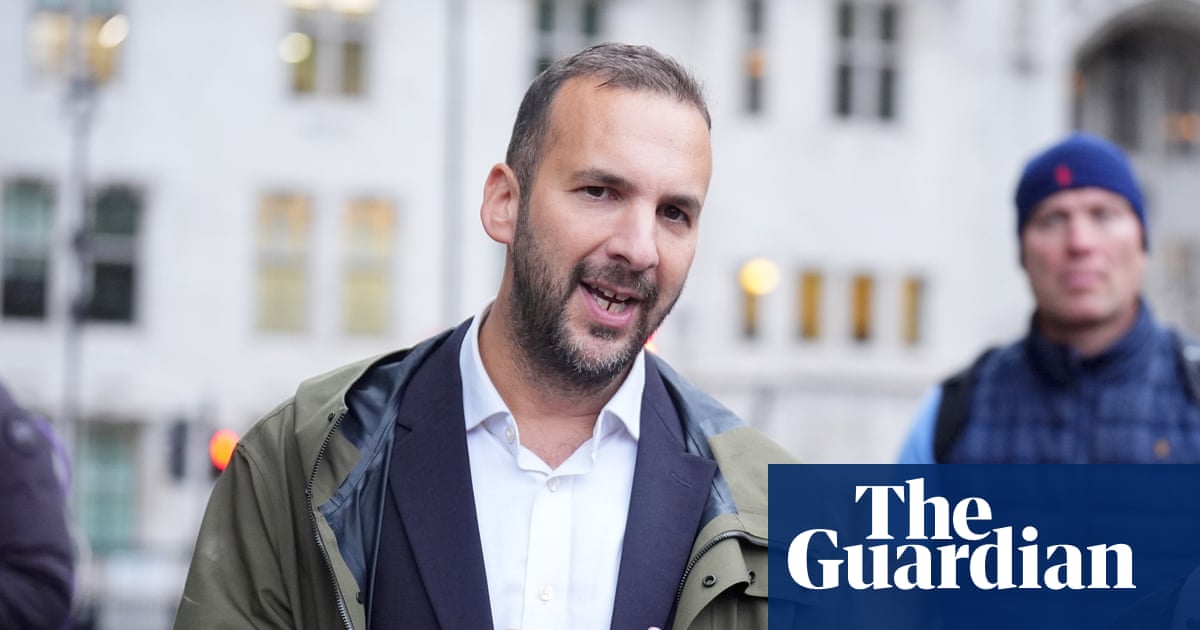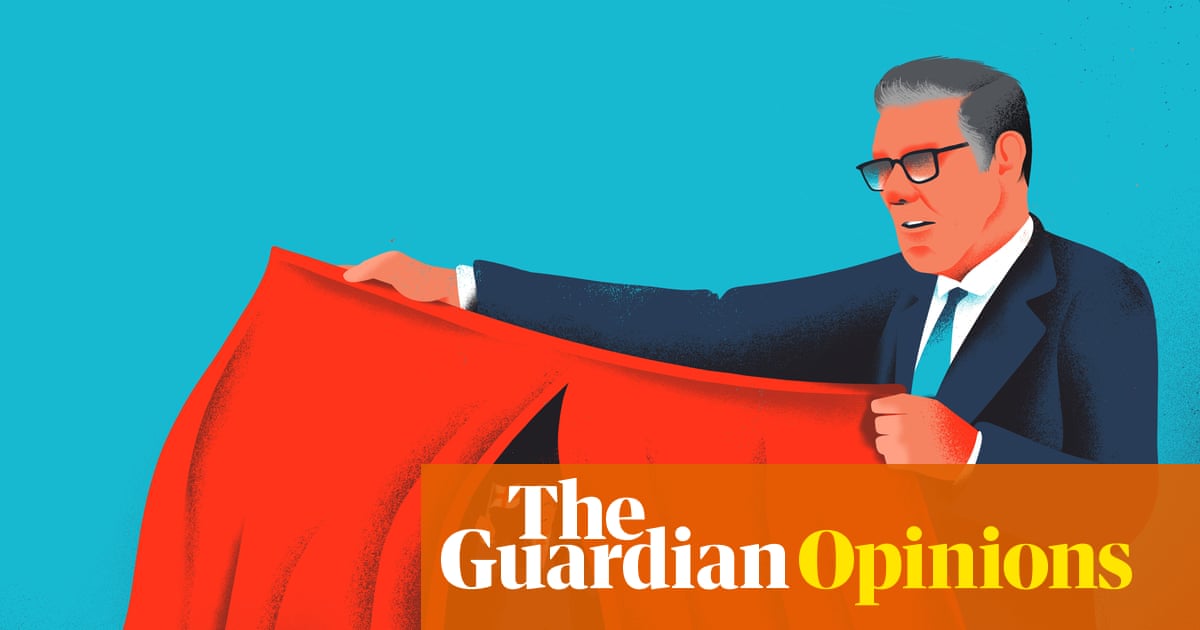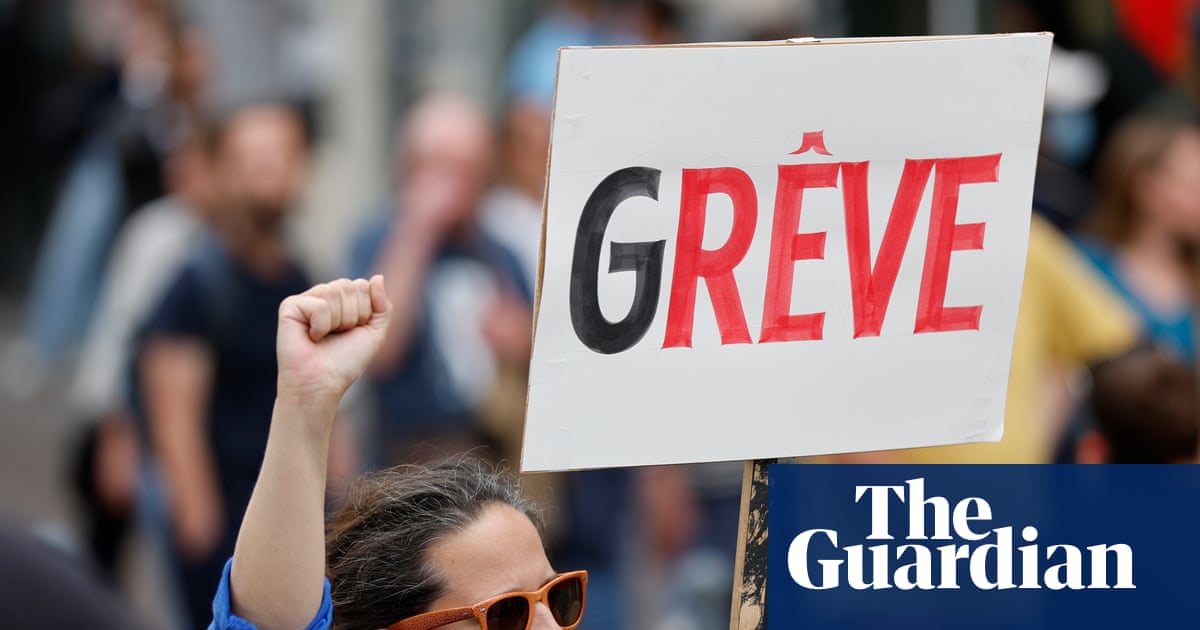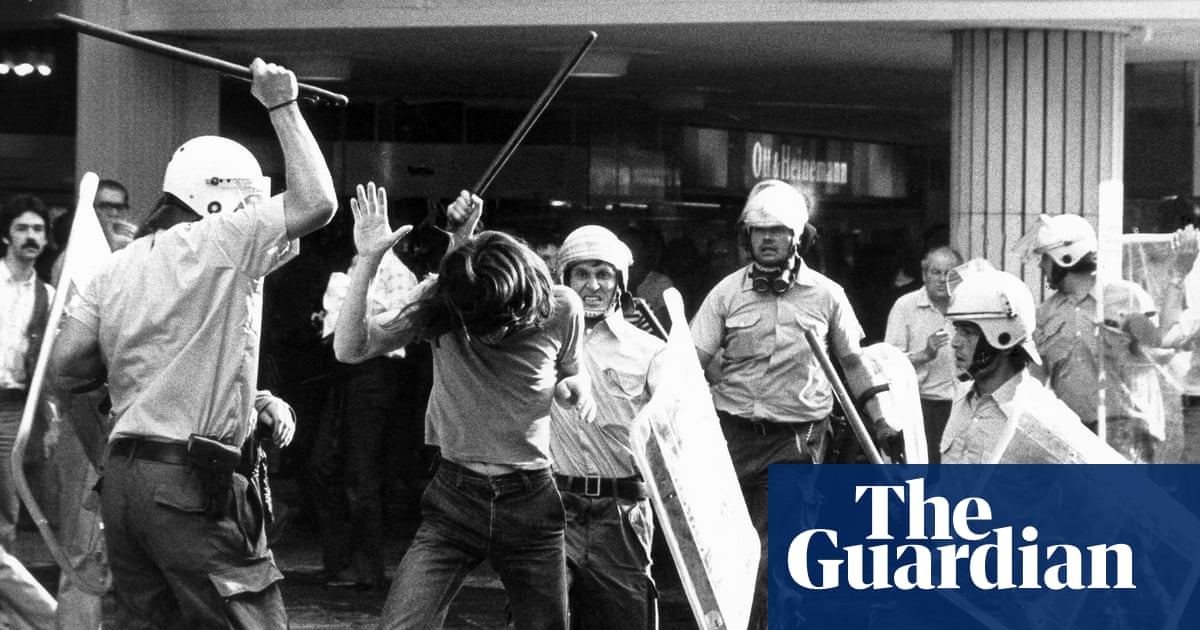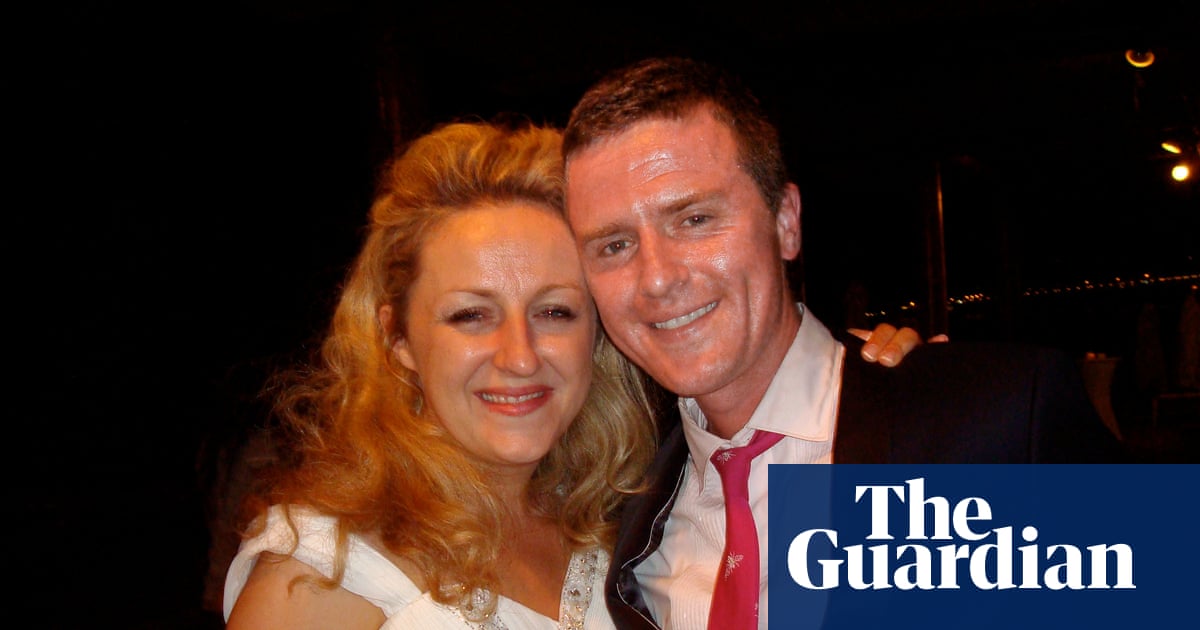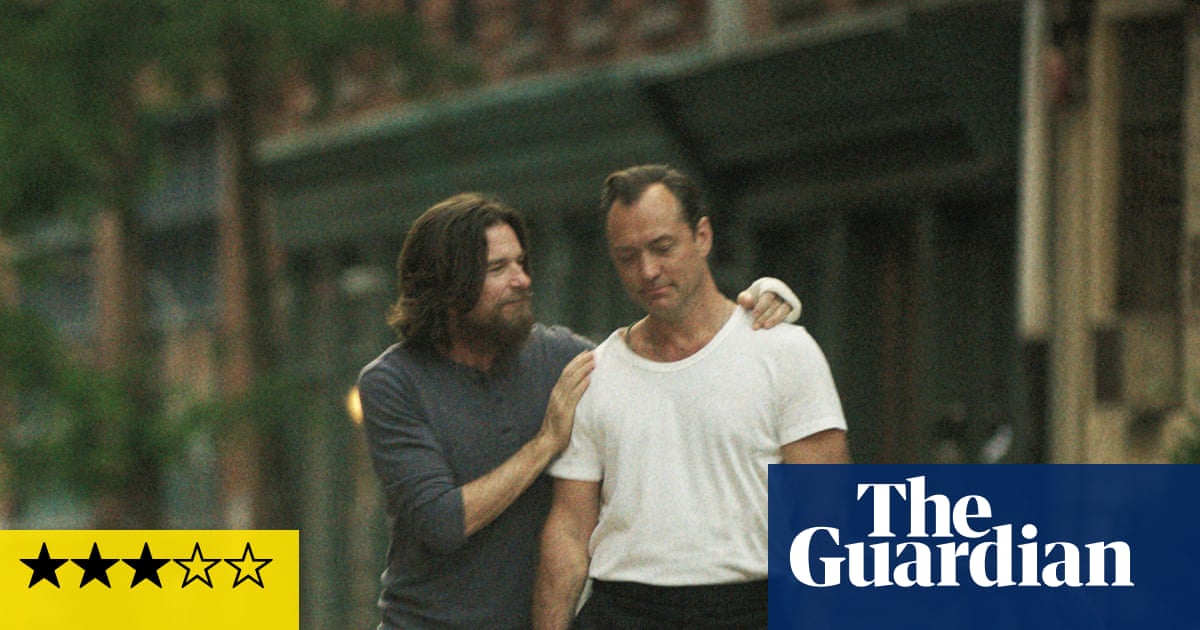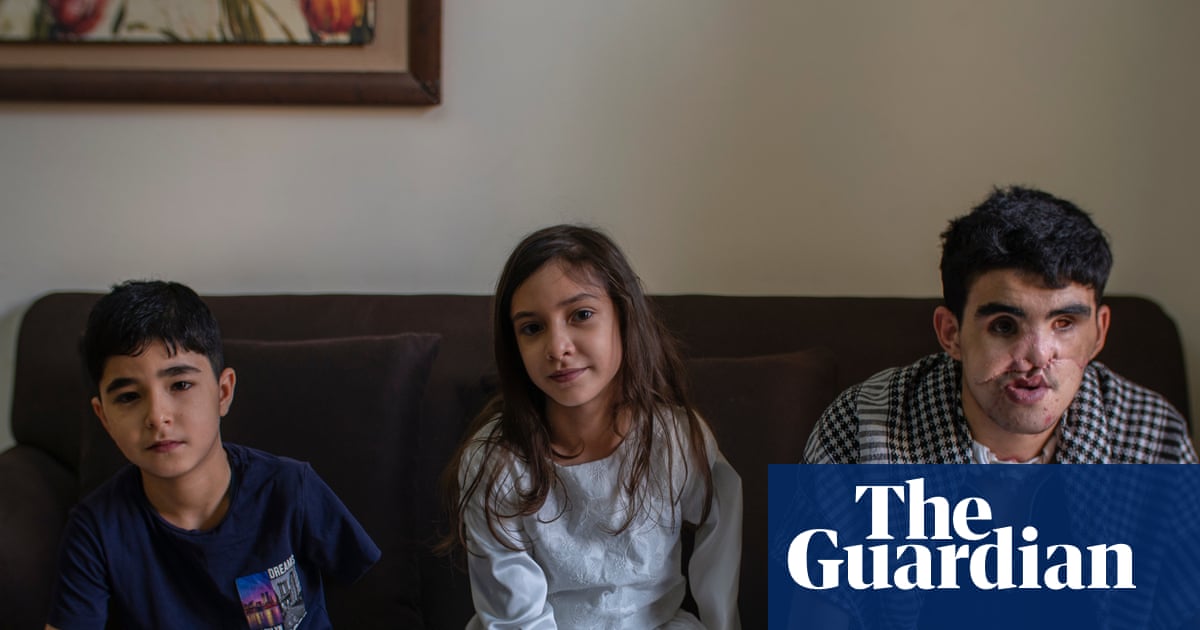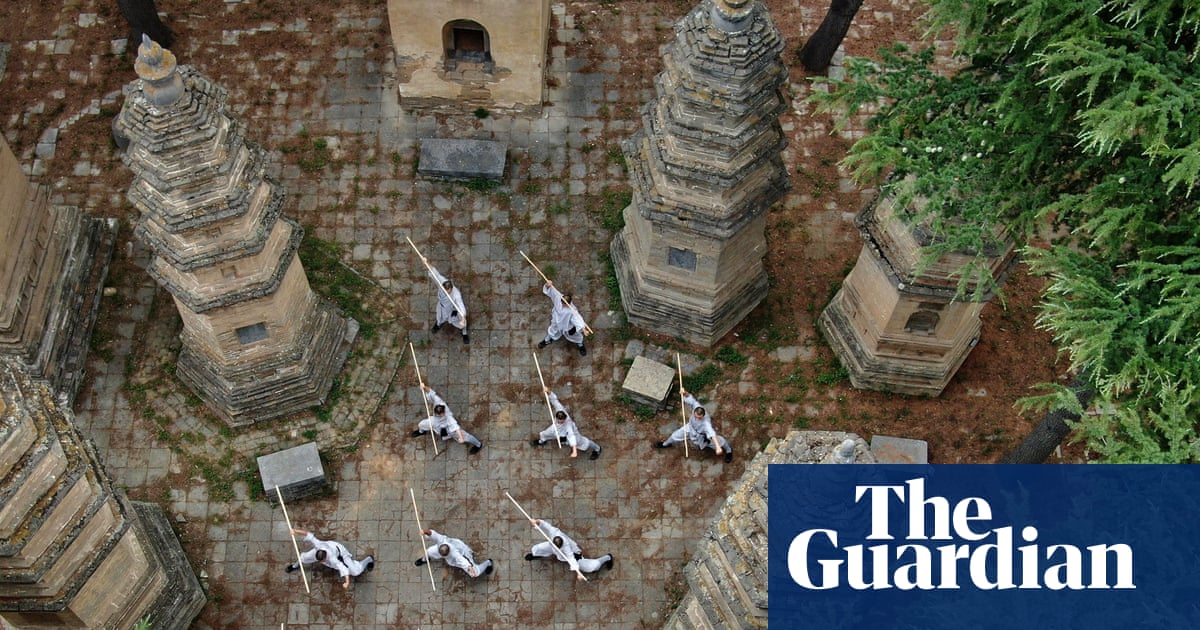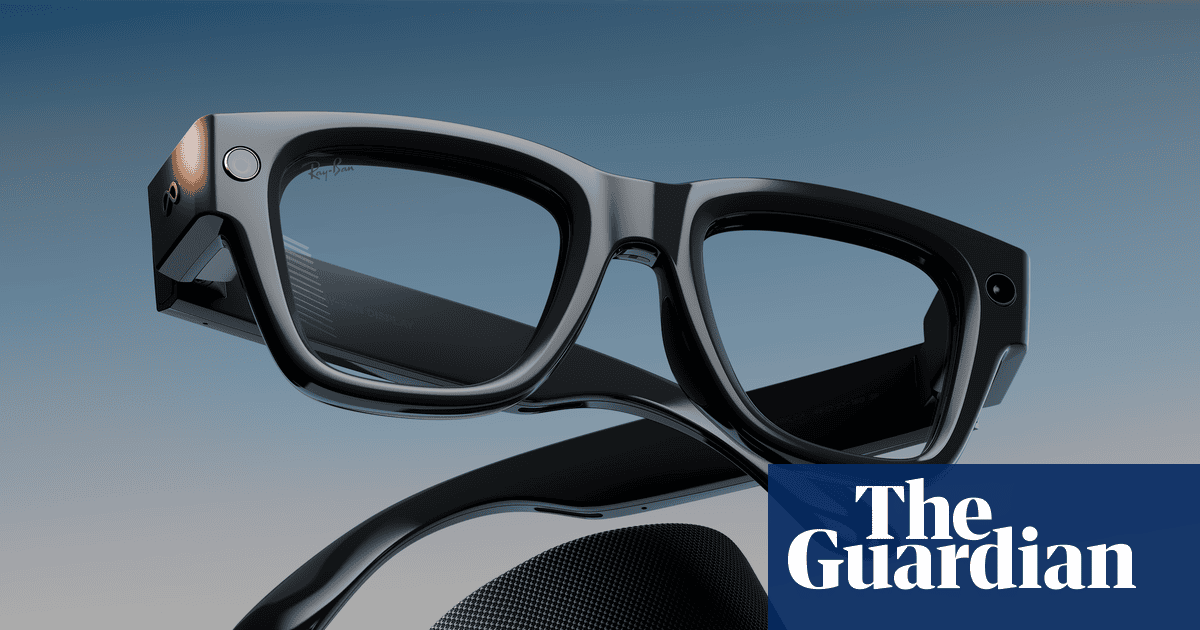When I first met Nick in 2019, at a dating and self-improvement summit in Miami, it wasn’t immediately obvious why he was paying so much money to pseudo-authority figures from the manosphere. He had looks, cash and some of the easy swagger of London done good.
Nick was over 6ft tall and had nice white teeth, labrador eyes and a healthy quotient of melanin courtesy of the sunbeds at the health club he went to twice a week. Financially, Nick had done well for himself, creating a mobile phone app and selling it to a big company. He’d put some of the proceeds down on a small flat in west London – not bad for someone in his mid-20s with no family money. Nick had even helped his parents buy an apartment in Spain on the Costa Blanca where the family holidayed twice a year, frequenting English bars and greasy spoons with all the other English people. He bought a lot of designer clothes, too (Armani, Gucci, Louis Vuitton, Stone Island, Off-White, Hugo Boss). “Important to have the basics sorted,” he’d say, splashing Tom Ford cologne on his neck before a trip to Mayfair.
I was clearly missing something: in particular, any concept of what he thought he was missing. The outward trappings of success were visible, yet internally there was a sense of inadequacy. Nick was not enough, or at least he thought he wasn’t, and somewhere out there was a course that would fix him.
What the various dating and masculinity coaches were selling Nick was a fantasy of control. That if he performed a certain set of actions, he would get a reliable set of results. Unsettling variables would be extracted from the equation. All it would take was somebody with a bit of charisma going off on YouTube, then the credit card would be out; another workshop booked in three weeks’ time. He was a sucker for the promises of spectacular transformations and “guaranteed results for a limited time only and there aren’t many places left so register now while there’s still time”.
I occasionally went out with Nick to the clubs and cocktail lounges of west London. Most of his mates from school were petty criminals, or wide boys from Fulham who were unreliable on a night out. They would drink too much and start talking about doing lines, and it wasn’t even midnight. Nick knew I was writing a book about the manosphere. He also knew that, as a freelancer, I had fewer excuses when it came to going out on a weeknight. I’d get a WhatsApp message in the afternoon asking if I was up for it. I’d reluctantly iron a shirt, put on uncomfortable shoes and tell myself that I might get some copy out of it.
We usually ended up in a club in Mayfair. Nick might eventually approach a woman he was interested in. Occasionally, the two of them would go home together at the end of the night. She’d notice him, glance over a few times coquettishly, and then, after psyching himself up, Nick would glide over and introduce himself. From there it was usually smooth sailing: she’d like him from the off and he hadn’t done anything to ruin the magic. Yet when I’d touch base with Nick the following day, his recollection of the night would usually differ from my own. For him it was all about the techniques he had used in the club: the power stances, the “alpha” tonality of his voice and the dominant frame control.
Nick’s emotional health would cycle through several different iterations. He would discover the latest influencer and seem content for a while. Feelings of self-doubt would recede while the hidden code retained its novelty. He would like to proselytise about it, too. We would meet at a bar or food court and he would wax enthusiastically about the latest stuff he was into. “Women want a leader of men, but society put us inside these boxes and made us passive,” he said while making the shape of a cube with his hands. “That way, we aren’t a threat to the status quo.” Nick would radiate confidence and authority as he let me in on some newly acquired piece of forbidden knowledge. After a month or so of this, the disillusionment would steadily kick in. Nick was a poor disciple, for the same reason he was good with technology. He would always discover some flaw in their inelastic models of the world – some nugget that didn’t quite sit right. Nick would take a few steps back and his search for answers would start over again, the zealous apostle metamorphosing back into the angst-ridden sceptic.
Nick reckoned he was 15 when his dad tried to have a solemn talk with him about women. “He acts like he knows a bit because the only woman he ever asked out said yes,” Nick, whose parents had been married for 25 years, told me through a smirk. “In his mind he’s got a 100% success rate.” The Talk made Nick cringe still 10 years later. “He said if I liked a girl, then I should buy her flowers, make a gesture and show her how I feel.” I asked Nick if he’d ever tried his dad’s approach. “Once,” he told me – when he was 16. “Nothing really happened. She didn’t take the piss, which was what I was most worried about. But it went nowhere. She ended up getting with another guy who wasn’t doing any romantic stuff. He used to take the piss out of her in class. I thought he was being a dick. But there was another level I wasn’t seeing.”
Nick had been looking for a girlfriend when I had first met him in Miami. He had a whiteboard in his room with a “vision” on it for where he wanted his life to be in six months’ time. He was fully bought into the self-help dogma about building momentum and improving – always improving. He planned to drop down a few percentage points of body fat, listen to more audiobooks (always on 1.5x speed) and find a quality girl to spend time with on weekends: someone to go out to restaurants with or watch films with on a rainy day. When Nick told me about the vision board, his goals sounded achievable and I was tentatively in favour of them. However, a few months later he scrubbed out the third goal and wrote a new one in its place. This one was more ambitious; it also seemed to have been implanted in Nick’s head by someone else. Finding a girlfriend was no longer one of the objectives. Now he wanted a “rotation”: a micro-harem of women who would share him between themselves and never demand exclusivity. “Women would rather share an alpha than get with a beta,” he told me, ventriloquising some red-pill huckster I had definitely heard say the same thing.
The manosphere has long divided the world into rigid and distinct hierarchies. Women are rated on a scale from one to 10. Men apply a similar taxonomy of social rank to themselves and each other. There are alphas and betas; red-pilled and blue-pilled; high-status and low-status. With the advent of social media, the process of stratification intensified. Dating is increasingly depicted as a winner-takes-all world in which a small percentage of men at the very top take the spoils. The rest are surplus men, condemned to a life of onanistic obstinacy.
In one sense the manosphere reflects wider market logic, which continually pushes its tentacles into new areas of life. Instagram launched in 2010; 10 years later it was home to 1.4 billion users. For some of them, life would steadily become a series of monetisable content opportunities. For others, this and similar platforms fostered subjective feelings of pauperisation. Users were more keenly aware of what they didn’t have; who their competition was; and how they were failing to market themselves correctly as consumable brands. At around the same time, dating apps were injecting market logic into the intimate domains of love, sex and romance. The LGBTQ+ app Grindr went online in 2009, followed by Tinder in 2012. Other people were becoming two-dimensional objects, marketed to potential consumers via these digital catalogues of flesh.
In the manosphere, these technological developments helped to spur the emergence of two contrasting – and mutually antagonistic – communities. “Incels”, a shorthand for involuntary celibates, subscribe to an ideology they call the “black pill”. Followers of the black pill accept most tenets of the red pill. Sex and relationships are viewed as rigid and hierarchical. Women, whom they depict as shallow, deceitful and opportunistic, are said to be “programmed” by their biology to sort men into desirable alphas and repulsive betas. Men outside the community are viewed as “blue-pilled” and brainwashed. Intimate relationships take place within a “sexual marketplace” (SMP). “High-value” individuals have a greater sexual market value (SMV: exchange value) than “low-value” individuals.
If the blue pill is synonymous with ignorance and the red pill about understanding the matrix to manipulate it, the black pill is rooted in the decision to relinquish hope altogether. Incels see themselves as the unwanted detritus of successive sexual and social media revolutions. Refusing to compete with the torrent of perfect images, they stew in nihilism and despair, denied access to the main currency of masculinity: women’s bodies.
Nick wasn’t an incel; he was one of the men who saw incels as a cautionary tale – the ultimate destiny of anyone who failed to mould themselves to the dictates of the digitised sexual marketplace. These men subscribed to many of the same reductive theories as the incels. They knew all about “SMVs” and – in common with just about every other faction in the manosphere – they frequently made men and women sound like eBay collectibles. Yet they were status-maxxers. Instead of marinating in resentment on subterranean forums such as 4chan and Reddit, they were spending eye-watering sums of money in the hope of joining the digital sexual elite. And, inevitably, a new generation of masculinity salesmen were on hand, promising to make their dreams come true.
By the summer of 2022, London was getting Nick down. He’d recently attended yet another pick-up bootcamp. The instructor had got the students to do “social pressure drills” in and around Leicester Square. First, he made them pair up and stand on opposite sides of the street in Piccadilly and yell at each other. Then he had them tap a stranger on the shoulder and attempt to start a conversation using gibberish – for example, “Orange peels. I like orange peels.” The exercises were meant to desensitise the students to rejection so that, later on, when they were in the thick of the action in the nightclub, things would seem easy by comparison.
It was the final drill that did it for Nick. The instructor told the men to attach themselves to lamp-posts in one of the city’s busiest thoroughfares. They were then to simulate having sex with it. Nick did what he was told because he was “trusting the process” (another self-help dictum). As was often the case on these programmes, clients would spend a lot of money and then rationalise it by following orders.
Nick located a suitable piece of street furniture and took up the position. He began with a gentle motion of the hips. The instructor was bearing down on the students, ensuring they were pushing through the fear. “Let’s see some enthusiasm, guys,” he bellowed. “Imagine you’ve just pulled a hottie back to yours from the club. Visualise it.” Nick tried closing his eyes to shut out the passing crowds. He started pummelling away until he reached a steady rhythm. He felt himself letting go as the crowds began to dissolve; maybe it didn’t matter what people thought of him.
after newsletter promotion
It was at that moment that a tingling sensation began to radiate upwards from his loins. He snapped back to reality and looked down: his phone was vibrating inside his trouser pocket. The instructor was berating another student who had detached himself from a lamp to swat away some tracksuited teenagers. Nick slipped his phone out surreptitiously and saw the word “Mum” flash on the screen. He had spoken with her already that day but he took the call anyway; he assumed it must be important. She sounded choked up when he answered. It was his grandad. He hadn’t been answering the phone all morning, so one of Nick’s cousins had gone round. He’d had to go in through an upstairs window because their grandad wasn’t answering the door either. Then he found him still lying in bed, propped up by a couple of pillows. He’d died during the night. “It was a lot to take in,” Nick told me.
The instructor wasn’t letting up, though. “Fight the fear,” he bellowed as Nick nestled the phone between his shoulder and ear, and listlessly gyrated his hips. “People in the street had completely faded out by that point,” he said. “I wasn’t feeling fear because I wasn’t feeling anything.” His mum was still on the line, fussing about her dad’s affairs that would need sorting. Had his grandad wanted to be buried or cremated? How should he know? He was still half-heartedly going at the lamp-post when the first salty tear ran down his cheek and into his mouth. At that point, “ it was like: what the fuck am I doing with my life?” Nick finally gave up when a drunken woman kicked him between the legs from behind with a bulky heel. The pain took a moment to reach his stomach but when it did, it brought welcome clarity. Nick said goodbye to his mum, wiped his eyes on his sleeve and tottered to the nearest underground station, hunching over to dull the pain.
Talking to Nick, the same names kept coming up: Michael Sartain, who charged students as much as $10,000 to attend his Men of Action course, which he likened to Noah’s Ark – a life vessel designed to rescue them from the rising swamp of involuntary celibacy; Dan “Blitz” Bilzerian, the self-proclaimed “king of Instagram”, widely known in the 2010s for his ostentatious portrayal of bachelorhood; Andrew Tate. There were other influencers, too, whose names I hadn’t heard before. I would look them up and invariably see the same loud and in-your-face wealth – enormous houses, luxury vehicles, yachts, private jets. But the most important prop of all was always the women, half-naked and willing – the more the better.
Nick regarded the Tate brothers, Andrew and Tristan, as high-status men. They hadn’t been arrested for suspected sex trafficking at that point; I just knew Andrew as this obnoxious guy from the internet. For Nick, however, men like him were showing the world that it was OK to have muscles and a sports car and more than one girlfriend. And you weren’t “toxic” or “problematic” for wanting those things. A normal life seemed boring by comparison. Nick agreed with Tate when he said that not every man wanted beans on toast, television at night, a nine-to-five job and a homely wife. Some men had a fire inside them, and Nick believed he was one of them.
There was also the question of expediency and not being left behind. “It does get rubbed in your face more nowadays,” he said one day out of the blue. “You see some guys getting all this attention.” From this, Nick had concluded that women were no longer interested in “average” men. Instead they wanted the best. Not just some women but all women. He was convinced he needed to lay the foundations of a high-status lifestyle. “Social media has ruined it for average guys,” he told me one night while we were at a bar in east London. “Girls see what they’re missing out on. Polygyny is nature’s equilibrium, and we’re going back there because it’s a better proposition for women than being with a beta.” Nick had been watching YouTube, listening to red-pill podcasts. He’d also been reading up on evolutionary psychology, comparing the events that supposedly took place in our ancestral past with the things he was seeing on social media and out at the club. The reality was brutal and shouldn’t be sugar-coated.
Nick liked to point out that 16 million men in the former Mongolian empire were direct descendants of the warrior-ruler Genghis Khan. “This is what happens when hypergamy goes unchecked,” he told me one evening during a catchup, blithely leaving out the raping and pillaging. “Look around you,” Nick said wearily. “High-status men have all the options.” We were getting food at Boxpark in Shoreditch, east London, on a wet and windy January evening. We were sitting at a picnic table. Next to us were some mixed groups of twentysomethings who, like us, were drinking beer out of plastic cups. “You really believe that?” I asked Nick. “On here I mean,” he said, waving his phone in the air. He then laid it on the table and took in the flesh and blood world for a moment. “They aren’t fucking those dudes any more,” he added, pointing to a group of men sitting at an adjacent table. “That girl, she’s probably talking to a high-status guy behind his back, or at least hoping he’ll slide into her DMs. That’s what social media has done; it’s changed expectations.”
In this, Nick seemed to be parroting another red-pill guru, Rollo Tomassi, who has accused social media of “grossly inflating [women’s] egos”; others have described them as being “delusional” about their dating prospects. Of course, the most delusional thing here was the idea that social media was boosting women’s self-esteem. In fact, Instagram has made body-image issues worse for one in three girls, according to internal Meta research leaked to the Wall Street Journal. In one study of teenagers in the UK and the US, more than 40% of Instagram users who said they felt “unattractive” said they started to feel that way after using the app.
I asked Nick if he thought his own sense of reality had been distorted at all by social media. (He admitted to watching internet porn for “at least 10 minutes” on most days.) “Maybe,” he replied before slamming the door firmly shut on that train of thought. “But I reckon I would want those things anyway,” he added. “As men, we aren’t programmed to be with one woman. Our proclivities weren’t created by reason, but by natural selection.”
Nick was ventriloquising one of his favourite gurus again.

 3 months ago
153
3 months ago
153
